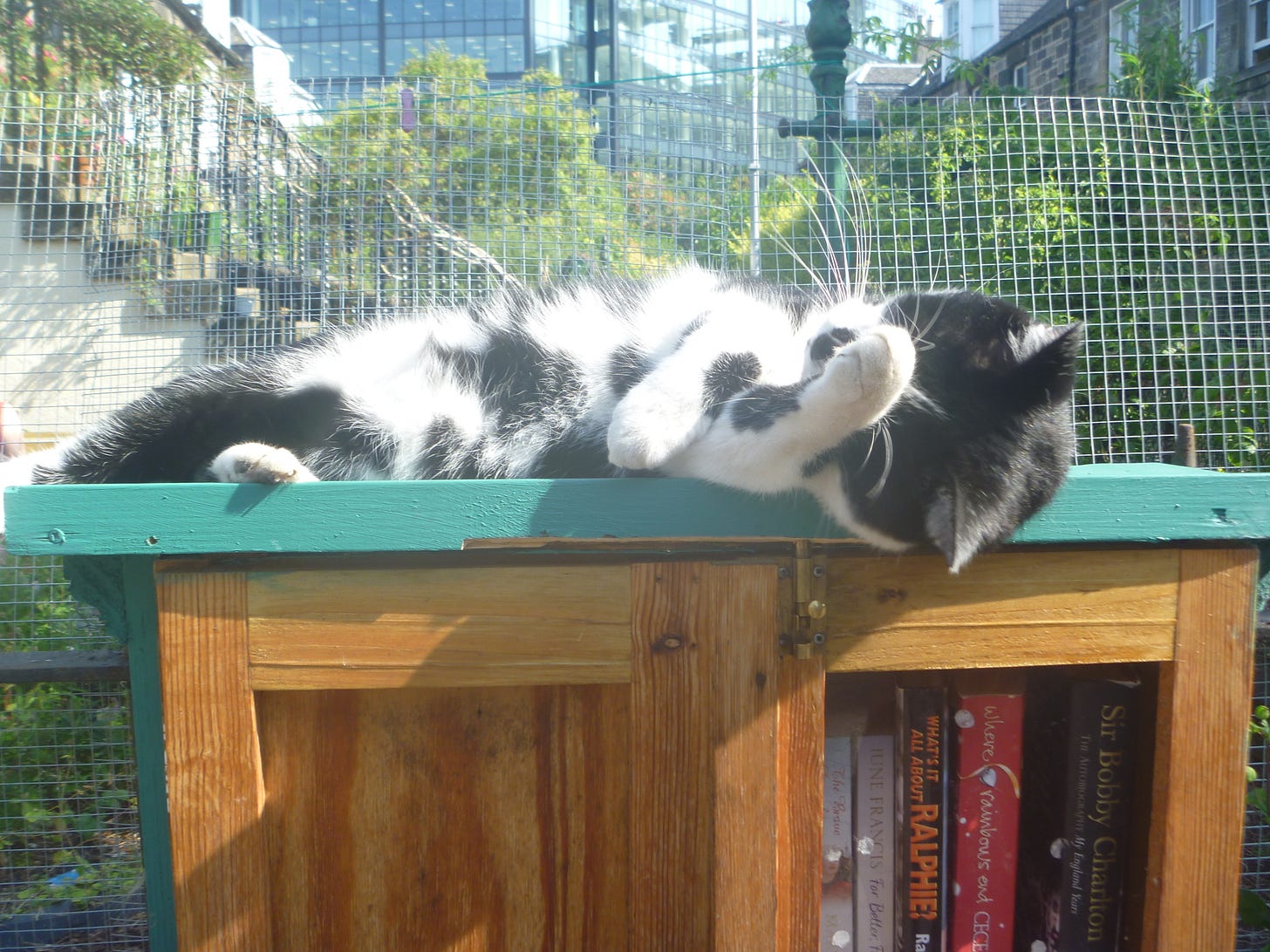Lending and Mending and Saving Resources
Some thoughts on the sharing economy
We’re facing a number of crises at the moment, not just in Scotland but in many parts of the world. One of the obvious ones is the climate crisis, another is the cost of living crisis. More and more people are finding that the sharing economy can help both of these crises. Wherever you’re based, there are likely to be projects going on like the ones I describe below, which are all in and around Edinburgh.
Edinburgh Library of Things opened earlier this year and has a selection of useful items that members can borrow, from jigsaws to a butter maker, from sewing machines to tents. The range of items available is sure to grow as the library becomes more established and attracts more donations from people who own things they rarely use. Membership rates start at £5 a month (concession) and allow you to borrow anything you want. You don’t need to be a member to donate items to the library.
A more well established organisation is The Edinburgh Tool Library, which so far has saved households £3 million and offer workshops where you can learn to use the tools you want to borrow! You can join for as little as £10 a year (concession) and volunteers (also known as tooligans) have been involved in numerous projects around Edinburgh, they’re responsible for several of the free libraries in town for a start.
Several Scottish Libraries now offer Lend and Mend Hubs, which offer free access to equipment to repair, reuse and upcycle everyday items. Libraries in Scotland also offer free access to computers, printing and photocopying and many run groups such as Bookbug groups for children, and writing groups and craft sessions for all ages. Some libraries go further, Orkney Library has an impressive Library of Things, including fancy dress outfits and birdwatching kits.
Toy Libraries across Scotland and beyond have lots of toys and game for children to borrow.
Beyond libraries, which allow you to borrow and return the things that you want to use, the sharing economy also includes initiatives such as Scrapstores (where you can find an inspiring range of supplies for art and craft projects) and repair projects. Some repair projects are regular businesses, like the two small independent tailor shops within a very short walking distance of where we live, where I take anything that needs a new zip (I repair a lot of my own clothes, but draw the line at zips, too tricky!) Other repair projects are social enterprises like Edinburgh Remakery, which offers a range of workshops, repair cafe meet-ups and training to encourage and support people to reuse and repair. Repair cafes are popping up all over the place, so it’s worth checking whether there are any in your area.
Second hand shops are also a valuable part of the sharing economy, and there are plenty of those in Edinburgh and indeed in most towns and cities in the UK. Most second hand shops support charities, though some are businesses (mostly these sell books and / or records). Most charity shops stock a wide range of items, though some specialise in books or records.
All these intitiatives encourage people to repair or borrow the items they need, rather than discarding worn out items or buying things that will only be rarely used. This helps to save people money, and supports a local sharing economy, which can become part of a local circular economy.
A circular economy is one that involves sharing, leasing, reusing, repairing, refurbishing, and recycling existing materials and products for as long as possible to avoid waste and to avoid excessive resource use. Scotland introduced a Circular Economy Act in 2024. You can read more about that here.
I’m based in Edinburgh, so that’s the location this article is focussed on. However, wherever you live there are probably similar initiatives, so do look around and find out!
I’ve Been Published
I’ve got a tiny poem up on the Smols website, you can read it here.
Exhibition to See
Wilding is a posthumous show from native American artist, curator and educator Jaune Quick-to-See Smith, on display at Edinburgh’s Fruitmarket Gallery until February next year. The exhibition has a strong eco-consciousness and is well worth seeing, featuring a number of the artist’s mixed media pieces and a large canoe sculpture.



Hi Juliet, congratulations on your publication- I can’t see it unfortunately?